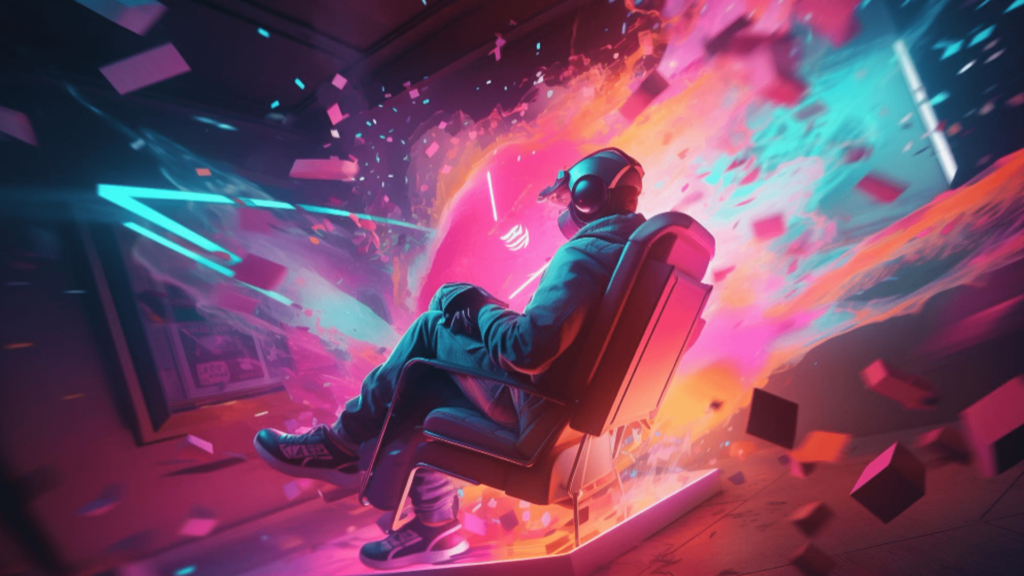
The Thrilling Evolution of Gaming: Unveiling Revolutionary Innovations and Must-Watch Trends
The Future of Gaming: Innovations and Predictions
The gaming industry stands at a pivotal moment, with groundbreaking technologies poised to reshape the landscape of interactive entertainment. As we look towards the future, several key trends and innovations are set to redefine how we experience and engage with games, making them more immersive, accessible, and interconnected.
Current Trends in Gaming
Today’s gaming environment is marked by incredible advancements in technology and a vibrant, expanding community. High-definition graphics, vast open-world environments, and intricate multiplayer experiences are the norm. The PlayStation 5 and Xbox Series X have set new standards with their advanced hardware, delivering stunning visuals and smooth gameplay. The rise of esports has turned gaming into a competitive sport, while platforms like Twitch and YouTube Gaming have turned casual play into professional streaming, drawing millions of viewers and participants globally.
Future Innovations
- Cloud Gaming
- Seamless Access: Cloud gaming is set to revolutionize how we play games by allowing seamless streaming of high-quality titles across various devices, including smartphones, tablets, and smart TVs. This shift means gamers will no longer be restricted by the limitations of their hardware, enabling them to play anywhere, anytime.
- Cost and Convenience: As cloud technology advances, the need for expensive gaming consoles or high-end PCs will diminish. This shift will lower the cost of entry for gaming, making it more accessible to a broader audience. Enhanced cloud infrastructure will reduce latency and improve streaming quality, offering a more fluid and enjoyable gaming experience.
- Virtual Reality (VR) and Augmented Reality (AR)
- Enhanced Immersion: VR technology is set to deliver increasingly realistic and immersive experiences. Advances in motion tracking, haptic feedback, and visual fidelity will allow players to feel fully immersed in virtual worlds, making gameplay more engaging and interactive.
- Blending Real and Virtual: AR technology will extend beyond simple mobile games, integrating digital content with the physical world in more sophisticated ways. Future AR experiences will create seamless interactions between the real and virtual worlds, enhancing gameplay and daily activities.
- Artificial Intelligence (AI)
- Adaptive Gameplay: AI is transforming game design by creating adaptive and responsive environments. NPCs will exhibit more complex behaviors and strategies, challenging players with realistic interactions. AI-driven procedural generation will continue to create unique game worlds and quests, ensuring that each player’s experience is distinctive.
- Personalized Experiences: AI will enable games to adapt to individual player preferences, optimizing difficulty levels and customizing content to match different playstyles. This personalization will enhance player satisfaction and engagement, offering a more tailored and immersive experience.
- Blockchain and NFTs
- Digital Ownership: Blockchain technology is set to revolutionize digital ownership through NFTs (Non-Fungible Tokens). Players will be able to own, buy, and sell in-game assets with verified authenticity. This innovation will allow for true ownership of digital items such as skins, weapons, and virtual real estate.
- Economic Impact: Blockchain and NFTs will introduce new economic models in gaming, creating opportunities for players to invest in and profit from their gaming experiences. These technologies will also improve transparency and security in transactions, addressing issues of fraud and ensuring fair play.
- Advanced Graphics and Realism
- Next-Gen Visuals: The quest for photorealism will continue to drive advancements in graphics technology. Technologies like ray tracing will enhance visual realism by simulating light behavior more accurately, creating richer and more detailed game worlds.
- Future Possibilities: As hardware and software capabilities advance, games will achieve even greater levels of visual fidelity. The line between virtual and reality will blur, offering players increasingly lifelike and immersive experiences.
- Social and Collaborative Gaming
- Community Focus: Modern gaming emphasizes social interaction and collaborative play. Multiplayer experiences and online communities are central to many games, fostering connections and teamwork among players.
- Enhanced Social Features: Future games will incorporate advanced social features, such as improved voice chat, cross-platform play, and virtual social spaces. These enhancements will strengthen community bonds and create new opportunities for interaction and collaboration.

Looking Ahead
The future of gaming is a thrilling prospect, filled with potential and promise. As cloud gaming becomes more widespread, the barriers to entry will decrease, allowing more people to join the gaming community. VR and AR will push the boundaries of immersion and interaction, while AI will make games more adaptive and personalized. Blockchain and NFTs will redefine digital ownership and in-game economies, and advanced graphics will continue to enhance visual realism.
Overall, the gaming industry is heading towards a future that is more connected, immersive, and accessible. These innovations will not only transform how we play but also how we experience and engage with games, making the future of gaming an exciting frontier of interactive entertainment.
























Post Comment